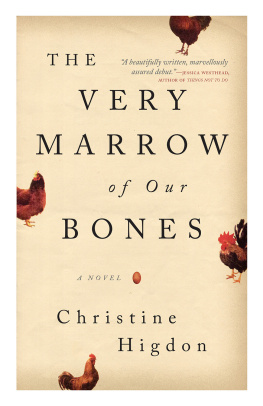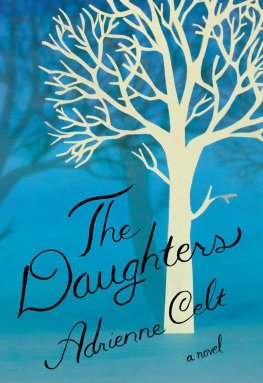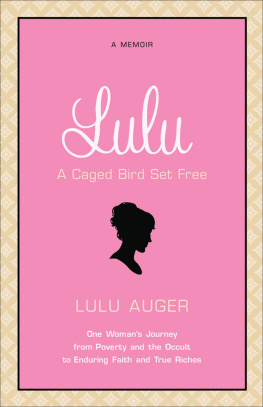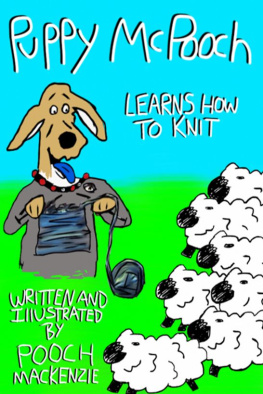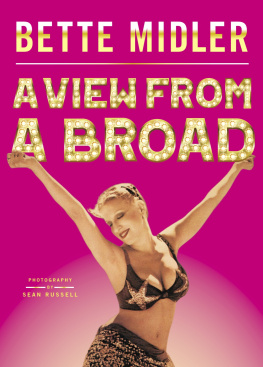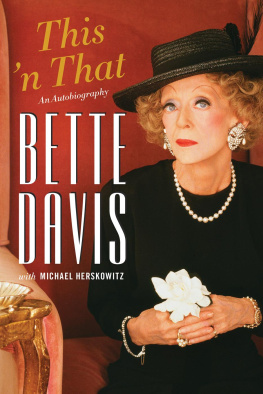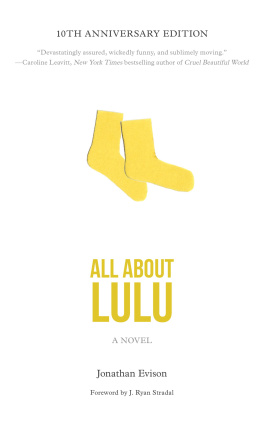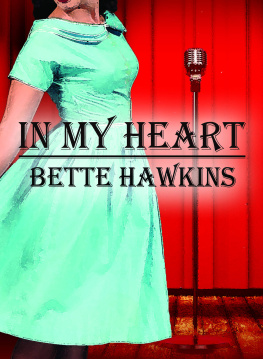It was under the milk jug on the kitchen table. A wet ring cut across the centre of the paper, a lined sheet shed torn from one of our scribblers. Mine probably. The ink had run milky blue, veins emptied onto the page. Why I hid it, I cant say. Why I didnt say anything about it to anyone, even when the police came, even years later, when my brother Trevor hammered a little wooden cross with her name on it into the garden, like for a dogs grave, and I kicked it over, I will never know.
None of us knew about pain. Not the kind that leaves you shattered and speechless. I had watched Trevor fly from the tree fort oncea graceless trapeze artistand heard the sharp, unexpected snap of his wrist against the moss and cedar blanket of the forest floor. Id seen my twin brothers Alan and Ambrose knocked bloody and unconscious in a dirt-bike crash at the gravelly corner of Forward Road and Hemlock Street. And when Jed was a puppy he ran headlong into the moving wheel of Mr. Tenpennys half ton. But no one had died. No one had left us. Not even a dog.
Once, my eldest brother Geordie and I came across the carcass of a freshly killed young possum in the back woods. Its arms were raised above its head, as if in disbelief. Beseeching. Whatever killed it had ripped open its belly and eaten all its tender bits. My mothers disappearance left us all like that. Gutted, hapless creatures flung unceremoniously into raw isolation.
Sometimes pain brings people together, helps them to cross the grand abyss of human discord. The lost are found. Sons reach out to fathers after years of silence. Sisters forgive brothers. Sometimes its too late.
My brother, he could use some mercy now.
Mary Gauthier, Mercy Now
I was early and Trevor would be late. When the rain came, I took cover under the awning of the Sylvia Hotel with half a dozen others. The sky had been overfilled and resentful, waiting all day for its moment, and the rain pelted down, kicking up puffs of sand on the beach. Then, almost as suddenly as it had begun, it stopped. The sky had told us what it was feeling. Now it was ready, like a lover, to lie serenely above us, purged.
Not me. I dont know what set me off. I was regretting having agreed to meet Trevor, so maybe the heavens and I were commiserating. Or maybe it was just my turn to glower and the skys tantrum had given me permission. Whichever, I walked along the beach path, away from Stanley Park, my mood matched by the tossing sea.
A young man skated by, then another, chasing. Grace on wheels, shoulders forward, arms back, rainwater spraying up behind their calves. Their lithe bodies flew away into the distance and I sighed. My most recent romantic encountera middle-aged American theatre criticwas still causing a commotion in my heart. Never again. I kicked a rock on the path and watched it fly off the seawall. I found a bench. It was dedicated to a dead person. This one read: Mac Clifton and Nippie. Beloved Husband and Father. 19202006. Nippie. Faithful Companion. 19952007. Playing fetch in the greatest field of all. Poor Nippie. I sat on the wet bench, covering the plaque with my back.
The tide was now as out as it could be. A knot of small children and a couple of women were combing the beach for shells and bullwhip kelp and other sea treasures. Another pretty young couple skated by hand in hand. I watched them, feeling even more irritable, until the boy tripped and the pair of them flew hands first to the wet asphalt. The Good Samaritan got the better of me, but not before an agreeable if completely uncharitable wave of score-settling washed over me. Enough, Lulu, I told myself. Pull yourself together. Its just Trevor.
Trevor was loping down Bidwell then waiting to cross Beach Avenue. Too thin, and always the samereceding hair in one of those pathetic pencil-thin ponytails, skinny jeans, his ancient leather jacket. He was carrying two motorcycle helmets, one the kind you might as well not weara skid lid, Dad called them. I hadnt been home for a year, hadnt seen Trevor in longer, but he hadnt changed. A little more gaunt maybe, if that was possible. He hadnt noticed me yet. For a moment I considered slipping into the public washrooms at English Bay, pretending I hadnt shown up. Id done it before. That way Id be sure of ending this stormy day without an argument. I should have.
He saw me. His arm went up, a long slow salute, a cool cock of the hand. Right on, Trevor. A car swerved, honked. Trevor gave the driver the finger and danced, Mick Jagger, across the street, pretty spry for a lifelong addict.
Hey, Lulu. Little Sis. How are ya? His hug was hard. No meat on his bones to make it sweet. Not that women seemed to care. Trevor, of all my brothers, had always had the gift with women. They fell for him. Smart, interesting, ought-to-know-better women left boyfriends, husbands, other countries for Trevor. And he unfailingly left them for some cherished wisp of freedom, or one of his other addictions.
We walked toward a big driftwood log on the beach; already we had nothing to say.
After a moment he said, Remember Great-Aunt Nellies story about Joe Fortes?
No.
Old Joe, she called him. He lived around here somewhere, in a little cabin. He taught all the kids in English Bay to swim. Her too. Nineteen oh seven or something. The city gave him a friggin state funeral when he died. Dont you remember her telling us about him?
I shook my head. Trevor often remembered things I didnt. And I had memories of things he didnt. Even the stories we both remembered seemed authored by two different pens.
What did you want to see me for? I said, foot, as usual, in my mouth. It was not the kind of question I had intended to ask nor the ones I had rehearsed in the car on the way into town. But Trevor was well defended. He turned to me, no sign of injury in his eyes.
A guys got a right to say hello to his little sister every once in a while, dont he? He smiled and leaned into my shoulder. Besides, I wanted to talk to you about something.
At the same time, I said What? and he said, Youre never home, Lulu. Surely that wasnt what he wanted to talk to me about.
Sorry, I said. A dog ran past hauling a stick longer than itself. A stout woman in her seventies, her hair covered by an old-fashioned chiffon kerchief, shambled past shouting after the dog. Mum would have been seventy-six, but nothing, I imagined, like this woman. More so than with any of my brothers, being with Trevor made me think of her.
What are you sorry for?
I shrugged. Do you ever think of Mum? I said, nodding at the woman with the dog.
Mum? Kind of weird to call her Mum, dont you think?
Well, what do you call her?
He didnt say anything for a while, then, so forlornly I grimaced: You bet, Bette? It was Dads phrase. I dont know, he said finally. I dont call her anything. You kind of forget after forty years, dont you?
He looked down at his hands, examined his knuckles. His fingernails were dirty. I looked at his face in profile. Hed never had acne but it seemed pocked anyway, and his beard had never grown in well. He was only fifty-five, but he looked haggard and lost. I turned away and counted the freighters anchored way out in the bay. Seventeen. There were two big motorboats too, probably ferrying ships crews to the shorethose Russian and Turkish merchant sailors who would stagger back up Granville or Burrard at two in the morning as the bars and clubs emptied, their toques askew. I never bothered to count the sailboats. Even on the grimmest days there were plenty. Vancouver is one stinking rich city.

